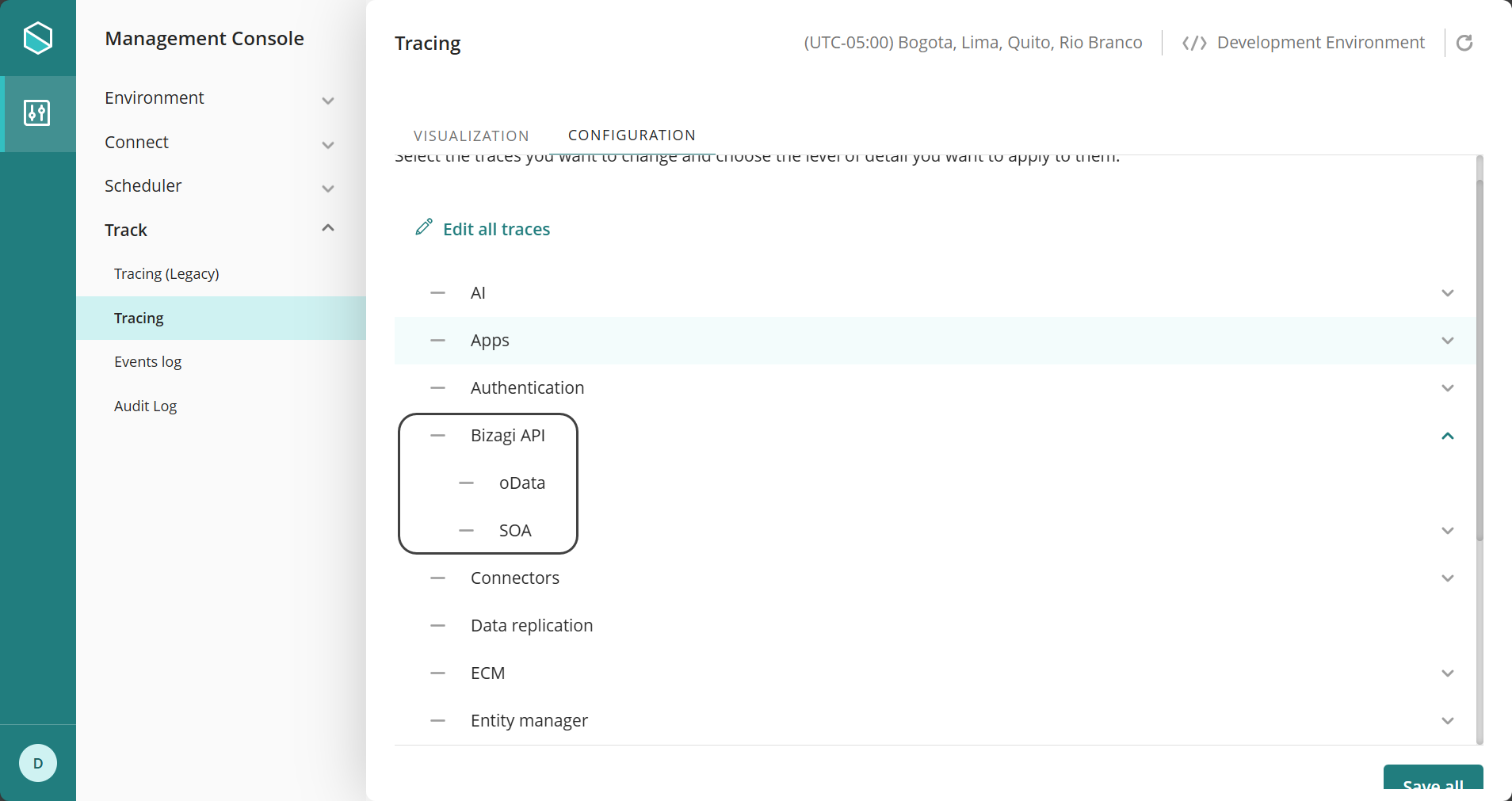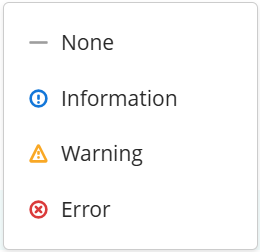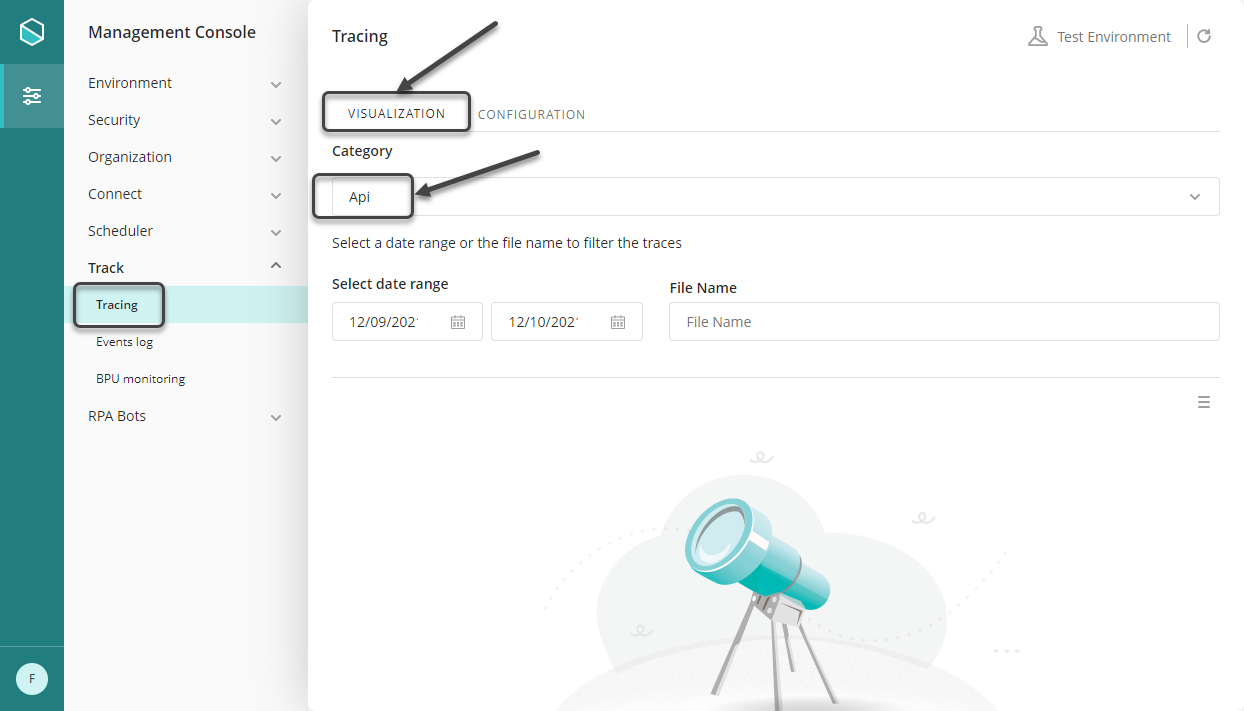Overview
When configuring OData invocations in Bizagi, you may rely on the use of traces for error control and diagnostics.
Traces let you detect whenever there is an issue with the OData invocation and retrieve further detail.
Bizagi API Traces
Whenever you are debugging a Bizagi API invocation (in development environments) or wish to retrieve more detailed information about a failed invocation, you may choose to enable API Tracing.

Click the hyphen symbol ( - ) to choose the level of detail you want to apply to this trace. You can choose among:
•None
•Information
•Warning
•Error

|
Keep in mind that Bizagi API traces can be enabled at any time; however, it is strongly recommended to enable them only temporarily when needed, and to disable them afterward.
Changes in this configuration will most likely require a reset in your Bizagi server's services. |
Enabling these traces is useful to track down, after an error in the application, the exact point where said error has happened.
How to trace your Bizagi API execution
With the following steps, we will illustrate how to use traces to detect and diagnose issues in Bizagi API invocations.
View Bizagi API traces
1.Setup the traces configuration in Bizagi Studio, as mentioned at the beginning of this article.
2.Through the Tracing options, enable the trace for Bizagi.
3.In the Management Console: Go to Track category and open it to see more options. click Tracing. Locate the Visualization Tab and in the Category drop-down list, click Api.

A list appears where you can see all the generated files.
Last Updated 5/16/2025 10:59:17 AM